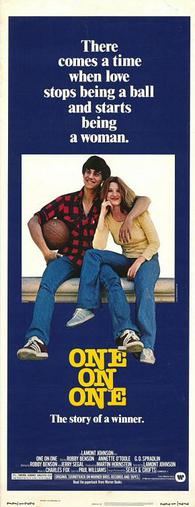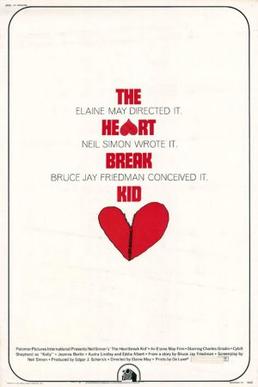
The Heartbreak Kid is a 1972 American black comedy romance film directed by Elaine May and written by Neil Simon, starring Charles Grodin, Cybill Shepherd, Jeannie Berlin, Audra Lindley, Eddie Albert, and Doris Roberts. It is based on the short story "A Change of Plan", written by Bruce Jay Friedman and first published in Esquire in 1966.

Funny Lady is a 1975 American biographical musical comedy-drama film and the sequel to the 1968 film Funny Girl. The film stars Barbra Streisand, James Caan, Omar Sharif, Roddy McDowall and Ben Vereen.
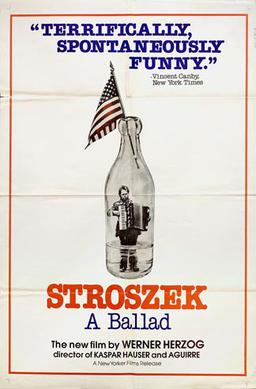
Stroszek is a 1977 German tragicomedy film directed by Werner Herzog and starring Bruno S., Eva Mattes, and Clemens Scheitz. Written specifically for Bruno S., the film was shot in Plainfield, Wisconsin, and North Carolina. Most of the lead roles are played by non-actors.

Personal Best is a 1982 American drama film written, produced and directed by Robert Towne. It stars Mariel Hemingway and real-life track star Patrice Donnelly, along with Scott Glenn as the coach. The film is about the lesbian relationship between two track-and-field teammates whose relationship might interfere with their performance.
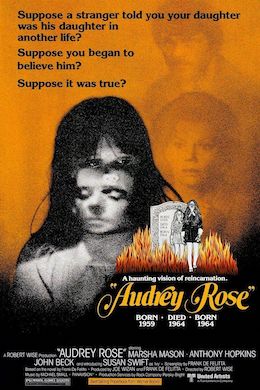
Audrey Rose is a 1977 American psychological horror drama film directed by Robert Wise and starring Marsha Mason, Anthony Hopkins, and John Beck. Its plot follows a New York City couple who are sought out by a stranger who believes their adolescent daughter is a reincarnation of his deceased one. It is based on the 1975 novel of the same name by Frank De Felitta, who also adapted the screenplay.

The First Great Train Robbery is a 1978 British heist comedy film directed by Michael Crichton, who also wrote the screenplay based on his 1975 novel The Great Train Robbery. The film stars Sean Connery, Donald Sutherland and Lesley-Anne Down.
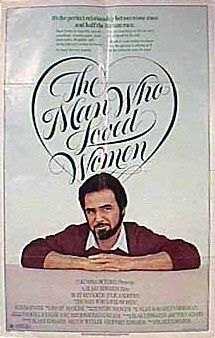
The Man Who Loved Women is a 1983 American comedy film directed by Blake Edwards and starring Burt Reynolds, Julie Andrews and Kim Basinger. It is a remake of the 1977 François Truffaut's film L'Homme qui aimait les femmes.

The French Lieutenant's Woman is a 1981 British romantic drama film directed by Karel Reisz, produced by Leon Clore, and adapted by the playwright Harold Pinter. It is based on The French Lieutenant's Woman, a 1969 novel by John Fowles. The music score is by Carl Davis and the cinematography by Freddie Francis.
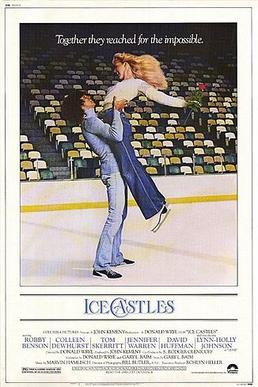
Ice Castles is a 1978 American romantic drama film directed by Donald Wrye and starring Lynn-Holly Johnson and Robby Benson. It is the story of Lexie Winston, a young figure skater, and her rise and fall from super stardom. Tragedy strikes when, following a freak accident, Lexie loses her sight, leaving her to hide away in the privacy of her own despair. She eventually perseveres and begins competing in figure skating again.

Lost and Found is a 1979 comedy film co-written and directed by Melvin Frank and starring George Segal and Glenda Jackson.
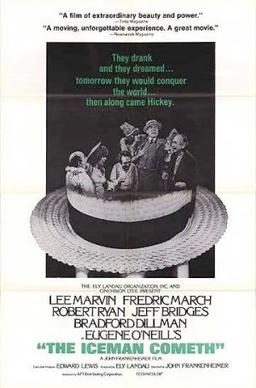
The Iceman Cometh is a 1973 American drama film directed by John Frankenheimer. The screenplay, written by Thomas Quinn Curtiss, is based on Eugene O'Neill's 1946 play of the same name. The film was produced by Ely Landau for the American Film Theatre, which from 1973 to 1975 presented thirteen film adaptations of noted plays.
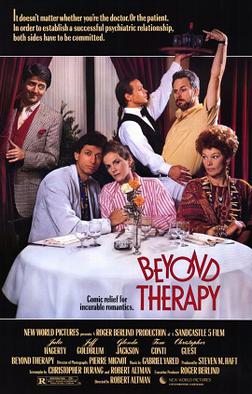
Beyond Therapy is a 1987 American comedy film written and directed by Robert Altman, based on the 1981 play of the same name by Christopher Durang. It stars Julie Hagerty, Jeff Goldblum, Glenda Jackson, Tom Conti, and Christopher Guest.

Child's Play is a 1972 American drama-mystery film directed by Sidney Lumet. It stars James Mason, Robert Preston and Beau Bridges. The screenplay by Leon Prochnik is based on the 1970 play of the same title by Robert Marasco.
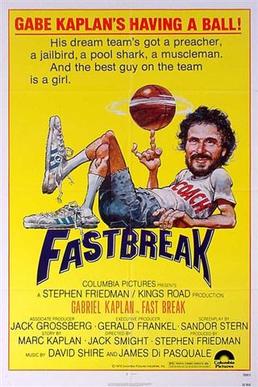
Fast Break is a 1979 American sports comedy film directed by Jack Smight and produced by Stephen Friedman. The film stars Gabe Kaplan as David Greene, Harold Sylvester as D.C. and Bernard King as Hustler. The film was Kaplan's big-screen debut, although he had made earlier appearances on television sitcoms and movies, and was one of the first film appearances of Laurence Fishburne.

Drive, He Said is a 1971 American independent film directed by Jack Nicholson, in his directorial debut, and starring William Tepper, Karen Black, Bruce Dern, Robert Towne, and Henry Jaglom. Based on the 1964 novel of the same name by Jeremy Larner, the film follows a disenchanted college basketball player who is having an affair with a professor's wife, as well as dealing with his counterculture roommate's preoccupation with avoiding the draft in the Vietnam War. The film features supporting performances by David Ogden Stiers, Cindy Williams, and Michael Warren. The screenplay was adapted by Larner and Nicholson, and included uncredited contributions from Terrence Malick.
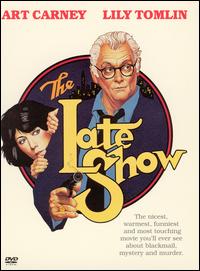
The Late Show is a 1977 American neo-noir mystery film written and directed by Robert Benton and produced by Robert Altman. It stars Art Carney, Lily Tomlin, Bill Macy, Eugene Roche, and Joanna Cassidy.

I Never Promised You a Rose Garden is a 1977 American psychological drama film directed by Anthony Page from a screenplay by Gavin Lambert and Lewis John Carlino, based on the 1964 novel of the same name by Joanne Greenberg. The film stars Bibi Andersson, Kathleen Quinlan, Sylvia Sidney, Martine Bartlett, Lorraine Gary, Signe Hasso, Susan Tyrrell, and Diane Varsi. It follows a mentally ill teen who struggles between fantasy and reality, escaping to her own imaginary world.

Harry & Son is a 1984 American drama film directed by Paul Newman, who also stars. The screenplay by Newman and Ronald Buck focuses on the relationship between a blue-collar worker and his son, who fails at various odd jobs while aspiring to be a writer. Joanne Woodward, Ellen Barkin, Ossie Davis, Wilford Brimley, and Judith Ivey also star. The film also features Morgan Freeman.
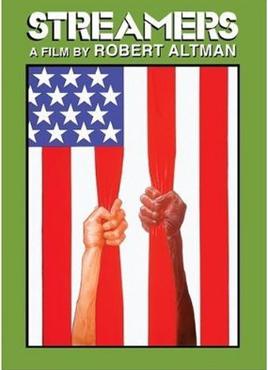
Streamers is a 1983 film adapted by David Rabe from his play of the same name. The film was directed by Robert Altman and produced by Robert Michael Geisler and John Roberdeau, who later produced The Thin Red Line. The cast includes David Alan Grier as Roger, Mitchell Lichtenstein as Richie, Matthew Modine as Billy, Michael Wright as Carlyle, George Dzundza as Cokes, and Guy Boyd as Rooney.

St. Ives is a 1976 American crime thriller film directed by J. Lee Thompson and starring Charles Bronson, John Houseman, Jacqueline Bisset, and Maximilian Schell.
